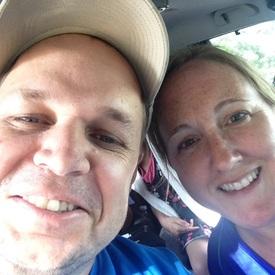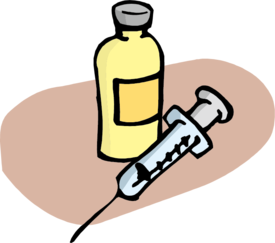Low carb and colitis

kendahlj
Posts: 243 Member
I've suffered from ulcerative colitis for the past 15 or so years. It's basically ulcers in the colon. One doctor told me it was one of the worst cases he'd seen. At its worst, I've had to miss work days because of it. The worst part is having to run to the toilet 9 or 10 times a day. You never know when it's going to hit and when it does you have about 30 seconds to find a toilet. It's really a bad health issue...a cousin of Chrohns Disease.
My point of this post is that I've been low carb (no sugar, grains, rice, pasta or potatoes) for a month and my symptoms are completely gone. I have normal BMs about once a day and feel spectacular. It truly feels like a miracle. The weight loss I've seen in a month is its own reward, but not dealing with issues from colitis is simply wonderful. I wish I'd have done this a long time ago. If you know of someone suffering from UC or any other IBS related issues, tell them to cut out carbs.
My point of this post is that I've been low carb (no sugar, grains, rice, pasta or potatoes) for a month and my symptoms are completely gone. I have normal BMs about once a day and feel spectacular. It truly feels like a miracle. The weight loss I've seen in a month is its own reward, but not dealing with issues from colitis is simply wonderful. I wish I'd have done this a long time ago. If you know of someone suffering from UC or any other IBS related issues, tell them to cut out carbs.
24
Replies
-
That is awesome!!! It's amazing to hear all of the health improvements from low carb other than the weight loss. So happy for you!3
-
That's wonderful news!2
-
Yay! I love hearing these kind of stories! The best part is how fast it helps too! And so dramatically!
Congrats on finding healing and bonus weight loss! So happy for you!2 -
I've suffered from ulcerative colitis for the past 15 or so years. It's basically ulcers in the colon. One doctor told me it was one of the worst cases he'd seen. At its worst, I've had to miss work days because of it. The worst part is having to run to the toilet 9 or 10 times a day. You never know when it's going to hit and when it does you have about 30 seconds to find a toilet. It's really a bad health issue...a cousin of Chrohns Disease.
My point of this post is that I've been low carb (no sugar, grains, rice, pasta or potatoes) for a month and my symptoms are completely gone. I have normal BMs about once a day and feel spectacular. It truly feels like a miracle. The weight loss I've seen in a month is its own reward, but not dealing with issues from colitis is simply wonderful. I wish I'd have done this a long time ago. If you know of someone suffering from UC or any other IBS related issues, tell them to cut out carbs.
@kendahlj that is awesome.
I when LCHF Oct 2014 to try and manage my joint and muscle pain. That worked well in just 30 days. About six months later my 40 years of serious IBS had fully resolved and still is today. I did go off sugar and all grains. I was talking with a guy Sunday that had his colon removed. The entire time I was wondering if he had just went LCHF would that have been required. He was near death but recovered quickly after the removal. Carbs seem to feed the bad microbiome more than the good.6 -
Thanks for all the comments. I'm shocked that it's cleared up so quickly. And so happy! I really think they should do a study. They say there is no cure for UC but I'd love to see the results of a controlled study where long time UC sufferers cut out carbs (sugars and grains). I'm not saying I'm cured, but it sure feels like it. I've never been in remission like this before... I suspect it would come back if started eating poorly again.2
-
You have to ask yourself if the one's that say UC can not be cured financially gain by getting us to believe that? When we remove the cause of a disease and it goes away I call that cured. My brain tells me I am cured.
If I have a nail in my tire and it leaks air is my leak 'cured' if I have the nail removed and the hole professionally repaired.
Yes as long as I do not drive over another nail or other such object.2 -
Fantastic news
Delighted to hear this. Keep up the great work!0 -
Have you tried the Probiotic VSL #3? From what I've learned it's a good treatment for IBS & Ulcerative Colitis (UC). I first learned about it from the Joe Rogan Experience podcast with guest Dr. Rhonda Patrick (Ph.D). It can be pricy if bought over the counter but if you've been diagnosed with either IBS or Ulcerative Colitis then you can have your doctor write a prescription for VSL #3 DS, so that your health insurance will cover it. I'm very excited to start taking it myself, just waiting for it to arrive in the mail.2
-
Congrats. I was diagnosed with Crohons last February. I was Keto (LCHF, no starch or sugar) for a long time before that. Unfortunately I did have to have the big surgery (colon and partt of my small intestine), the ostomy, and the new diet. Still trying to figure out what I can and cannot eat. I take VSL#3. I;m glad LC works for you. I have discovered I cannot really eat meat or fats. Veggies seem to thicken everything, and slow everything up. I'm out of ideas, and pretty frustrated1
-
I'm sure you know this, but I use tumeric and ginger 3X/day for the inflammation. I don't know if it really helps or not.0
-
Snowhite61 wrote: »I'm sure you know this, but I use tumeric and ginger 3X/day for the inflammation. I don't know if it really helps or not.
I'm on warfarin at the moment so I can't take turmeric, but I will once I'm off the warfarin...
Sorry about your Crohn's...that's no fun. I guess LC isn't the miracle cure, but it has worked for my UC. My brother in law has Crohn's and I talked to him recently and found out he doesn't eat carbs because they mess him up. He has to take a shot of something every day.
0 -
Congratulations that is terrific news! My ex-MIL had UC/colostomy bag, my ex-husband has Crohns and my mom was diagnosed with UC approximately 10 years ago. She had some success with clinical trials using Remicade infusions, but they stopped working. She is currently trying one "last" option before pushing for surgery.
I have tried the LC/keto conversations with no success.... she is also T2D. Fat is bad for the heart you know and a person has to 'have carbs'. sigh
You're right, I'm sure different options work for different people, but you were open minded, tried it and found success. YAY YOU!1 -
I'm not surprised, but feel it's freakin awesome!! Congratulations! I can't imagine how much better you feel!
How do you think your physician will react?0 -
That's terrific! Keep up the great work!0
-
kimberwolf71 wrote: »Congratulations that is terrific news! My ex-MIL had UC/colostomy bag, my ex-husband has Crohns and my mom was diagnosed with UC approximately 10 years ago. She had some success with clinical trials using Remicade infusions, but they stopped working. She is currently trying one "last" option before pushing for surgery.
I have tried the LC/keto conversations with no success.... she is also T2D. Fat is bad for the heart you know and a person has to 'have carbs'. sigh
You're right, I'm sure different options work for different people, but you were open minded, tried it and found success. YAY YOU!
You're welcome to show her my diary. She can get a birds eye view of
how LC works with blood glucose. I've been T2D for over 32 years now
& only in the last year got my diabetes under control. or
or 
1 -
My IBS issues from fibromyalgia cleared up when I went gluten free - so glad you found something that frees you from the bathroom. Time to start your life again, @kendahlj !1
-
-
 That's amazing! I hope your UC stays away!! 0
That's amazing! I hope your UC stays away!! 0 -
canadjineh wrote: »My IBS issues from fibromyalgia cleared up when I went gluten free - so glad you found something that frees you from the bathroom. Time to start your life again, @kendahlj !
Have you heard of this from others that had Fibromyalgia before? I have a friend that has it, maybe I should tell her?
Dan0 -
Amazing!0
-
@DittoDan - here's an article from Medscape (continuing ed for medical professionals site). I posted it on a FM group here.
March 23/2015 article and references on Medscape
Gluten-free Diet in the Management of Patients With Irritable Bowel Syndrome, Fibromyalgia and Lymphocytic Enteritis
Umberto Volta
Disclosures
Arthritis Res Ther. 2014;16(505)
Authors and Disclosures
Umberto Volta
Department of Medical and Surgical Sciences, University of Bologna, via Massarenti 9, Bologna 40138, Italy
Correspondence
umberto.volta@aosp.bo.it
Competing interests
The author declares that he has no competing interests.
"An evaluation of the effect of 1 year of a gluten-free diet was performed in patients with irritable bowel syndrome and fibromyalgia syndrome displaying lymphocytic enteritis. Gluten withdrawal produced a slight but significant improvement of the functional symptoms, suggesting that gluten might be partly responsible for this clinical picture. This hypothesis should be confirmed by a double-blind placebo-controlled trial since it cannot be ruled out that the studied patients displayed a subjective sensation of improvement due to the placebo effect of gluten withdrawal. Further investigations are needed before recommending gluten withdrawal in patients with fibromyalgia and lymphocytic enteritis.
In their paper published in a recent issue of Arthritis Research and Therapy, Rodrigo and colleagues evaluated the effect of 1 year of a gluten-free diet on the clinical evolution of irritable bowel syndrome (IBS) plus fibromyalgia syndrome (FMS) in patients with lymphocytic enteritis (LE).[1] The study sample included 97 adult females with IBS and FMS, of whom 58 had LE and the remaining 39 had a normal intraepithelial lymphocytic (IEL) count. All subjects fulfilled the Rome III criteria for IBS and the American College of Rheumatology 1990 criteria for FMS and none of them satisfied the diagnostic criteria for celiac disease diagnosis (absence of villous atrophy and negativity for tissue transglutaminase antibodies).
IBS and FMS are two chronic functional disorders that are found in a high number of people in the general population and are frequently detected in the same subject.[2] A subset of patients complaining of IBS and FMS displays LE, a morphological finding that by itself is not specific for celiac disease, also being found in many other pathological conditions such as food allergy, autoimmune disorders, Helicobacter pylori infection, nonsteroidal anti-inflammatory drug treatment and common variable immunodeficiency.[3]
The spectrum of gluten-related disorders has recently acquired a new syndrome, defined as nonceliac gluten sensitivity according to the criteria established in the two Consensus Conferences held in London and Munich.[4] This new clinical entity is characterized by IBS-like symptoms and several extraintestinal manifestations occurring after gluten ingestion in patients without celiac disease and wheat allergy. In a recent prospective multicenter survey of 486 patients with nonceliac gluten sensitivity, IBS and FMS were respectively detected in 47% and 31% of cases and about one-third of these patients had LE.[5]
Along with IBS-related and FMS-related symptoms, the patients studied by Rodrigo and colleagues also showed other manifestations resembling the clinical picture of nonceliac gluten sensitivity such as skin rash, cognitive dysfunction, headache, numbness, anxiety and depression.[1]
In Rodrigo and colleagues' paper, the gluten-free diet produced a slight but significant improvement of both IBS-related (chronic abdominal pain, changes in intestinal habit, bloating) and FMS-related symptoms (chronic widespread pain, generalized tender points, fatigue and restless sleep) in the LE subgroup versus the non-LE subgroup. These results stress the potential role of gluten as a trigger of the clinical manifestations of IBS and FMS and indicate that LE might be useful to identify those patients who potentially benefit from gluten withdrawal. One relevant limitation of this study is the lack of a double-blind placebo-controlled challenge, which is the only procedure to confirm the role of gluten proteins in the development of these clinical manifestations. Indeed, it cannot be ruled out that some patients displayed a subjective sensation of improvement due to the placebo effect of a gluten-free diet.[6] The search for antigliadin antibodies could be of help to elucidate whether gluten can be partly responsible for the clinical picture observed in Rodrigo and colleagues' patients. Indeed, antigliadin antibodies (particularly those belonging to the IgG class) are the only marker observed in patients with symptoms elicited by gluten ingestion, being positive in more than 50% of cases.[7] These antibodies are not specific for gluten-related symptoms, but their finding in patients with symptoms potentially evoked by gluten ingestion should be regarded as an indication for a gluten-free diet trial in patients with LE.[8] Antigliadin antibodies of the IgG class are closely related to the gluten-induced symptoms and tend to disappear very quickly (within a few weeks) together with the remission of symptoms after a gluten-free diet.[9]
An interesting finding emerging from the Spanish study is that about 20% of IBS/FMS patients with LE had relatives with celiac disease, whereas no familial case of celiac disease was observed among patients without LE.[1] In the same guise, familial cases of FMS were found, although to a lesser extent, only in the group with LE (7%). These data suggest that first-degree relatives of IBS/FMS patients with LE should be carefully investigated for the possible presence of undetected cases of celiac disease and FMS. For LE, the mean IEL number reported in Rodrigo and colleagues' paper was 35/100. This result confirms that LE found in gluten-sensitive patients is mild, with a lower mean IEL number than that usually observed in celiac disease patients (usually >40/100).[10]
The caution in the conclusions of Rodrigo and colleagues' study is appreciable and shareable. A gluten-free diet is not appropriate in patients with IBS/FMS with normal intestinal mucosa (normal IEL count). Moreover, although the reported results suggest a significant improvement of symptomatology after a gluten-free diet in the LE subgroup, further studies including double-blind placebo-controlled trials are needed before proposing gluten withdrawal in IBS/FMS patients with LE.
References
1.Rodrigo L, Blanco I, Bobes J, de Serres F: Effect of one year of a gluten-free diet on the clinical evolution of irritable bowel syndrome plus fibromyalgia in patients with associated lymphocytic enteritis: a case–control study. Arthritis Res Ther 2014, 16:421.
2.Whitehead WE, Palsson O, Jones KR: Systematic review of the comorbidity of irritable bowel syndrome with other disorders: what are the causes and implications? Gastroenterology 2002, 122:1140–1156.
3.Brown I, Mino-Kenudson M, Deshpande V, Lauwers GY: Intraepithelial lymphocytosis in architecturally preserved proximal small intestinal mucosa: an increasing diagnostic problem with a wide differential diagnosis. Arch Pathol Lab Med 2006, 130:1020–1025.
4.Catassi C, Bai JC, Bonaz B, Bouma G, Calabrò A, Carroccio A, Castillejo G, Ciacci C, Cristofori F, Dolinsek J, Francavilla R, Elli L, Green P, Holtmeier W, Koehler P, Koletzko S, Meinhold C, Sanders D, Schumann M, Schuppan D, Ullrich R, Vécsei A, Volta U, Zevallos V, Sapone A, Fasano A: Non-celiac gluten sensitivity: the new frontier of gluten related disorders. Nutrients 2013, 5:3839–3853.
5.Volta U, Bardella MT, Calabrò A, Troncone R, Corazza GR: Study Group for Non-Celiac Gluten Sensitivity: An Italian prospective multicenter survey on patients suspected of having non-celiac gluten sensitivity. BMC Med 2014, 12:85.
6.Godlee F: Gluten sensitivity: real or not? BMJ 2012, 345:e7982.
7.Volta U, Tovoli F, Cicola R, Parisi C, Fabbri A, Piscaglia M, Fiorini E, Caio G: Serological tests in gluten sensitivity (nonceliac gluten intolerance). J Clin Gastroenterol 2012, 46:680–685.
8.Verdu EF: Can gluten contribute to irritable bowel syndrome? Am J Gastroenterol 2011, 106:516–518.
9.Caio G, Volta U, Tovoli F, De Giorgio R: Effect of gluten-free diet on immune response to gliadin in patients with non-coeliac gluten sensitivity. BMC Gastroenterol 2014, 12:85.
10.Volta U, Caio G, Tovoli F, De Giorgio R: Non-celiac gluten sensitivity: questions still to be answered despite an increasing awareness. Cell Mol Immunol 2013, 10:383–392.
0 -
@DittoDan - at the end they state that a gluten free diet is not appropriate in patients with normal intestinal mucosa, but then state that the reported results suggest a significant improvement - so I know what choice I'd make if I had to do it again...0
This discussion has been closed.















